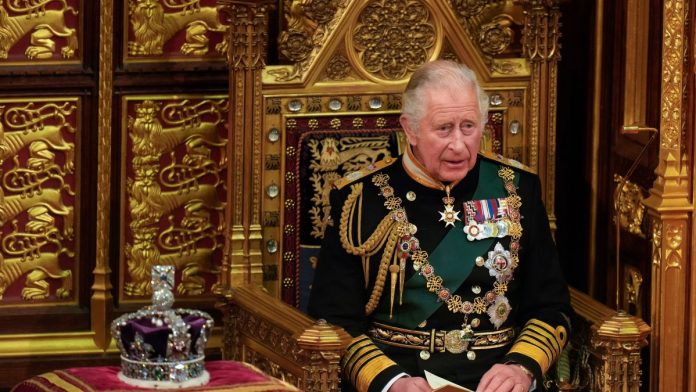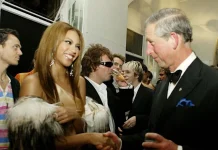At King Charles III’s Coronation, who has the honour of finding a glove for his right hand? And who has the hereditary right to provide a sword for the historic ceremony at Westminster Abbey?
These are not tricky pub quiz questions but real-life protocol conundrums facing organisers of the May 6 event that will be watched by billions around the world.
Now a special unit – the Coronation Claims Office – has been set up to help decide who can perform what roles.
In the case of the glove, historic protocol dictates that the honour falls to whoever owns the Manor of Worksop in Nottinghamshire.
Anticipating a deluge of offers to take part in the Coronation from members of the aristocracy – and anyone else who can point to a historic reason why they should be involved in the crowning of Charles – the Cabinet Office has marshalled a team to assess potential claims.
Oliver Dowden, the Chancellor of the Duchy of Lancaster, said: ‘His Majesty, the King’s Coronation will be a momentous occasion in the history of our country. The new Coronation Claims Office will ensure we fulfil The King’s wish that the ceremony is rooted in tradition and pageantry but also embraces the future.’
The new office replaces the Court of Claims, an ancient court set up to hear petitions from those who believe they have the right to perform a particular honorific service for a new monarch on their Coronation day.

It last sat during the final weeks of 1952, ahead of the Coronation of Queen Elizabeth in 1953.
On that occasion, the court considered claims from the Lord High Steward of Ireland who suggested he carry a white wand, several peers who offered to carry the ‘Great Gold Spurs’, and the Duke of Somerset who proposed he carries the Orb or Sceptre for the new Queen.
The new Coronation Claims Office will consider matters including whether the role or service was performed in 1953 or not, what the basis is for it to be performed now and the claimant’s connection to those who previously performed the role or service.
Officials will consult ecclesiastical experts from Lambeth Palace and ceremonial experts from the Royal Household when considering claims, said a spokeswoman.
The first recorded use of the Court of Claims was in 1377, when John of Gaunt, the uncle to a ten-year-old Richard II, decided who would carry out which task during the infant king’s coronation.
Individuals or organisations who would like to participate in the King’s coronation have been given four weeks to apply to the Coronation Claims Office, the Daily Telegraph reports.
Most applicants are expected to be peers or Church of England dioceses.
Applicants must give their names and contact details. They must also outline the claim they wish to perform.
They will need to provide evidence that the claim has been performed at past coronations and prove their connection to whoever oversaw that role or service.
The coronation claims submission form is available to download online and must be handed over in writing by post or by email no later than 5.30pm on February 3.












